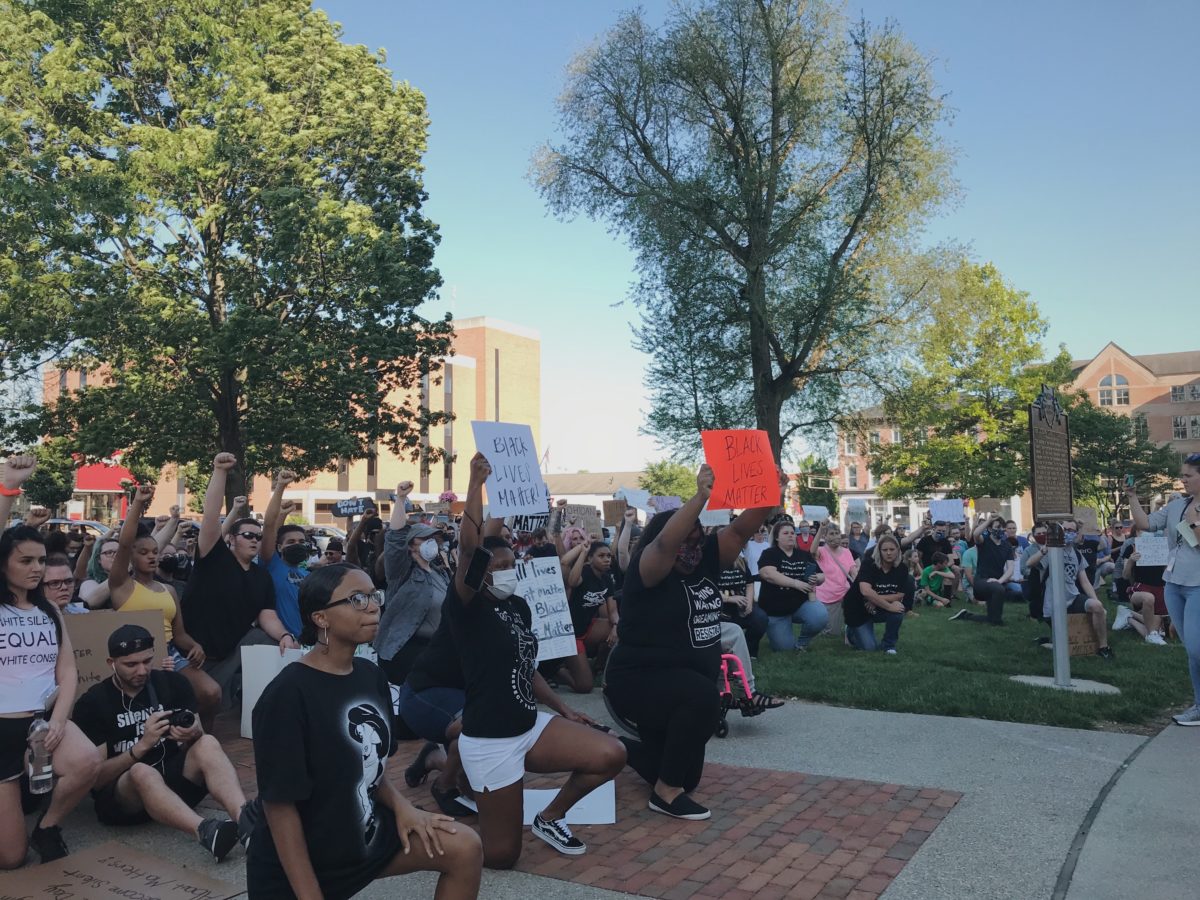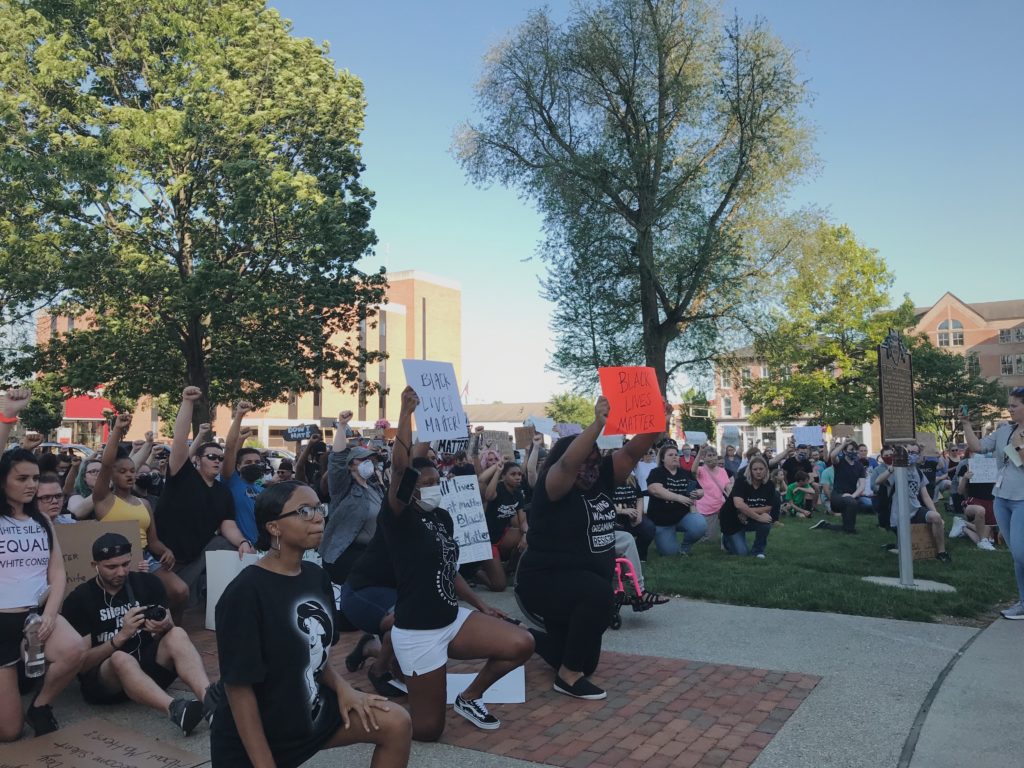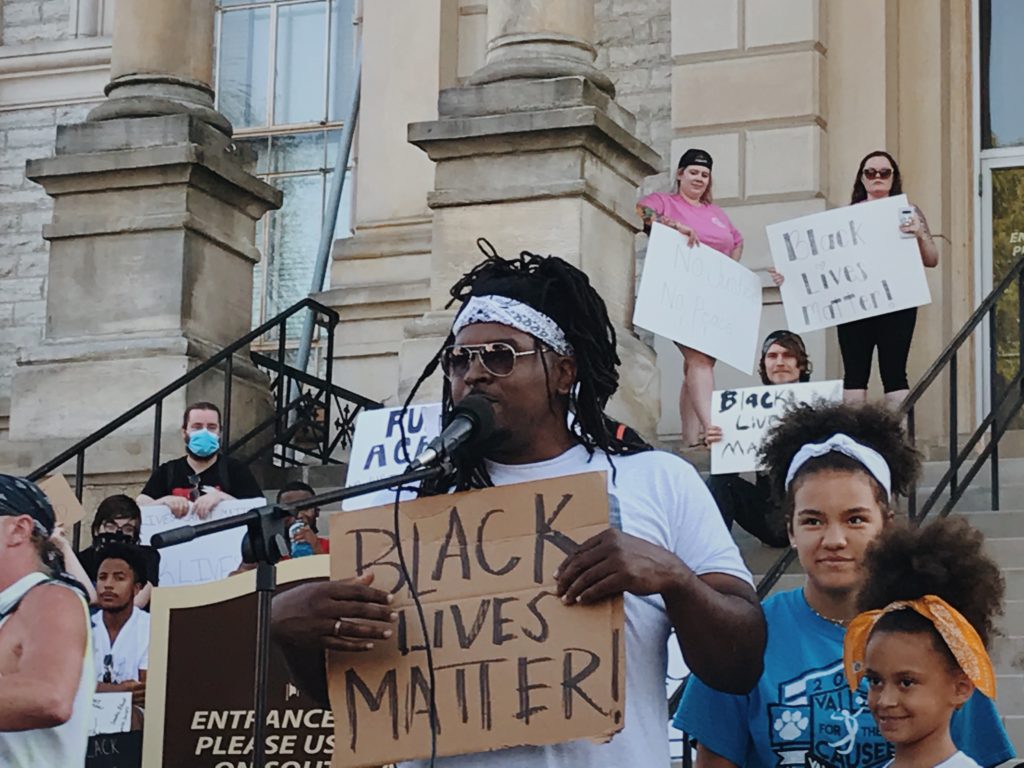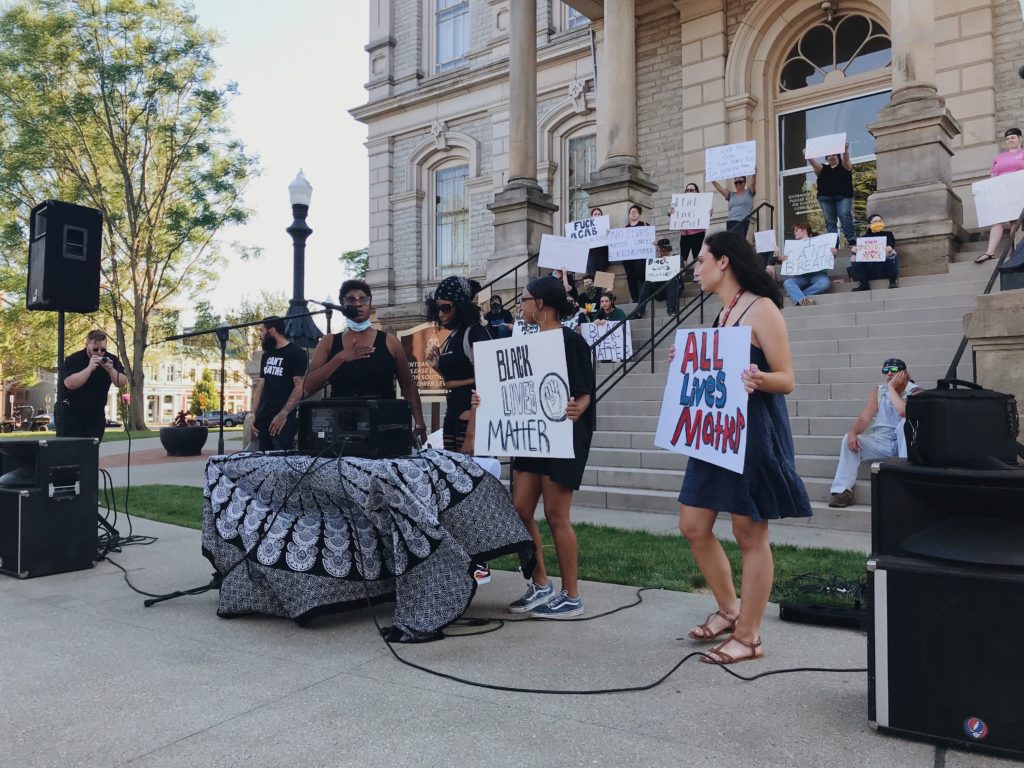This story is the second installment in a series of written and audio stories called Black Lives in Licking County, a collaboration between the NAACP of Licking County, The Reporting Project at Denison University, and the Newark Advocate.
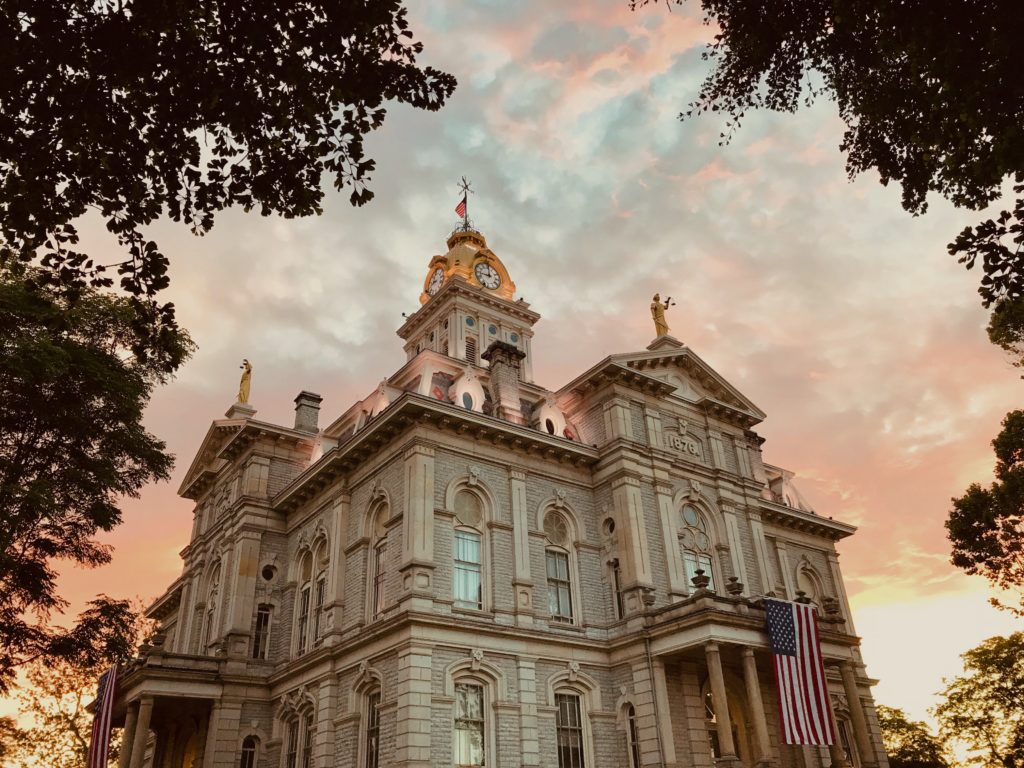
NEWARK–On a warm evening last June, just after a bold sunset scattered golden-pink clouds over the Licking County Courthouse, Jyheim Harden’s deep voice spoke into a microphone set up out front: “This is America, and this is our country!”
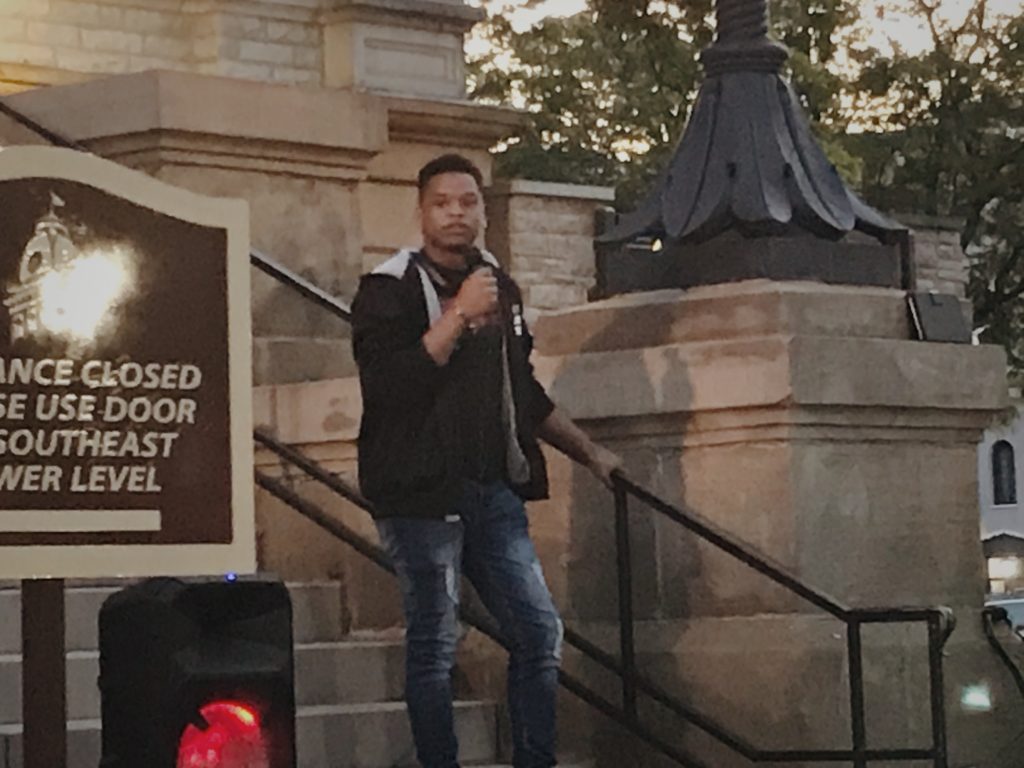
Harden stood with quiet strength in front of hundreds gathered for a Juneteenth celebration and vigil organized by local teen Carmen Lewandowski. The event was meant to mark this annual celebration of the freedom of enslaved people as well as to honor the life of Breonna Taylor, the young Black woman shot and killed earlier that year by white Louisville police officers.
It was during this time when people across the globe protested against racial injustice, and Licking Countians did the same, organizing at least six vigils or protests in June and July. There were four in Newark, one in Heath, and one in Granville.
“This is not one person’s country,” Harden continued as he looked out into a crowd of people, most of them were young, many of them were white, and holding signs that read “Black Lives Matter.” “It’s not a country with one race. We are all Americans, multicultural America, diverse America. I want you all to go home with this one thing: remember that you are welcome here. This is a safe space, right here tonight.”
But in that moment,16-year-old Harden would admit that he had not always felt safe or supported in Licking County. As many of those who grow up Black in the U.S. often do, he had felt like he was on the outside. Even though Harden was raised by his family to be a respectful young person, he said he was once the object of a racial slur from a customer at the fast food restaurant where he worked. While it might cause one to want to retaliate, Harden never did. A peacemaker at heart, he quietly endured.
Growing Up
Harden moved from Newark, New Jersey to Heath, Ohio in 2013. The transition was difficult. He was used to being able to walk to school and to go to stores or to meet up with friends. Now he had to find transportation. Many things felt new and different. But what surprised him the most was that in Heath, less than 4% of the population is Black. In Newark, New Jersey, 50% of people identify as Black. He initially struggled to see where he would fit in.
Harden noted other differences and said that in New Jersey, Black History Month was celebrated every February at his school. They enjoyed guest speakers, assemblies, and programs dedicated to Black people from both the past and present. But at his new middle school, he felt it wasn’t as robust of a program.
Harden said he wasn’t always the best student, but he made it his task to make Black History Month a bigger celebration at his new school. He said he put up posters highlighting Black history facts and influential leaders and was allowed to speak on the morning announcements. He says he never experienced any backlash, but he felt some apathy.
“Being raised in a predominantly white area,” Harden said, “it really doesn’t affect you as much, to them it doesn’t matter. To them, they’re like, well, ‘Why do we need an entire month dedicated to Black people?’ They don’t realize that history was written by white people.”
For Harden, though, a small flame inside him had been ignited. Even though he felt like he wasn’t doing enough, it was a step toward something greater, something even more impactful.
As he entered Heath High School, he said he began to find more friends and allies, especially among other Black students, most notably Jadyn Paige.
“We have always had a bond over things like social justice,” Paige said. She felt his presence the moment he stepped foot into Licking County. She said she appreciated his desire for social justice. As their friendship developed, so too did her own desire to become an activist and to push for social change.
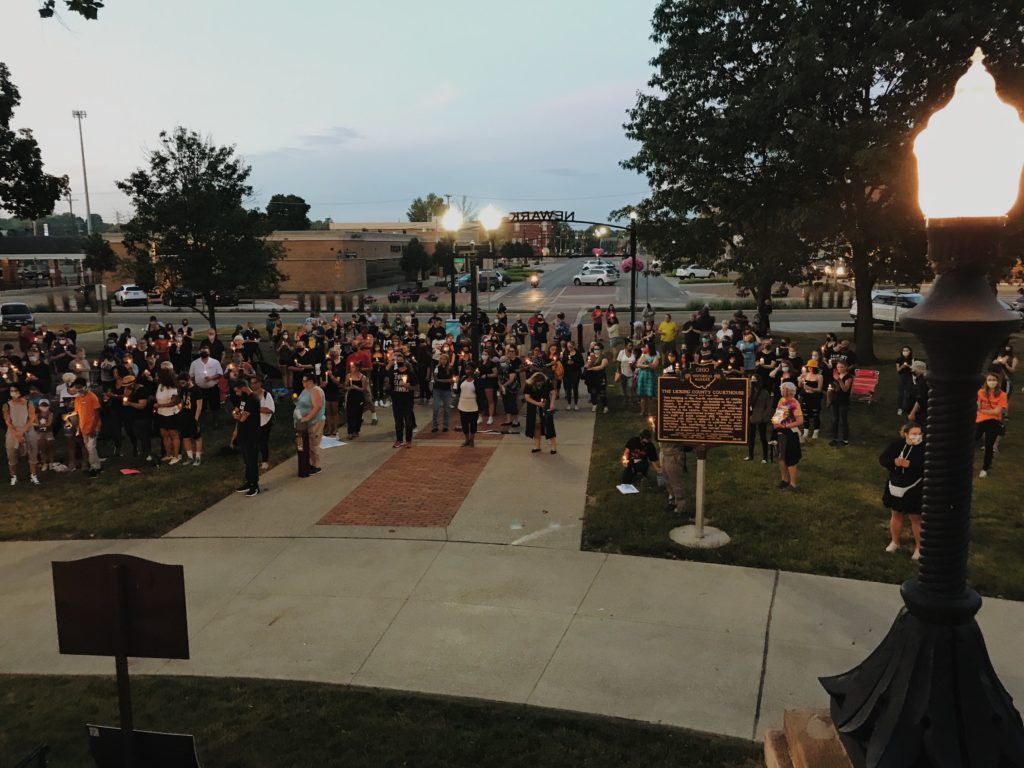
Finding a Community
May 25, 2020 was a horrific day. This day and on the days following, many Americans watched and re-watched the tragic death of George Floyd. Harden watched the video as police officer Derek Chauvin hammered Floyd’s neck to the ground in broad daylight. Harden, like so many young people around the country, said that he wanted his voice to be heard. Intent on helping to organize a peaceful gathering, he posted an announcement on Snapchat and made a Facebook event calling for a protest in front of the Licking County Courthouse. Others had similar ideas. He didn’t expect many folks to respond.
But his announcement, along with others, gained momentum all together and was reposted and shared more times than he could’ve ever imagined. With the collective efforts of other community activists including Josh Jenkins, Jordan Bragg, Devan Hamilton, Melanie Craft, Jamie Holderman, and JoAnn Poulton, hundreds of people flooded the courthouse square on June 2, the day of the protest.
“It was really just the community that put [that event] together,” Harden said.
Unfortunately, due to an illness in his family, he couldn’t attend. Instead, he watched virtually, in awe, as others in the community stepped in to support the effort, to make that event go smoothly–the police, both the Black and white community, and his peers.
In spite of this support, there was opposition. In a crowd full of protestors, there was a woman holding an “All Lives Matter” sign who tried to speak into the microphone. People booed and tried to block her. Josh Jenkins stepped in and denied their ability to do so, saying she can have her opinion. Harden agreed with Jenkins, voicing that everyone is entitled to their own opinion, and that this woman had the right to express her views.
“I’m not a person who is into division,” Harden said. “I just want everybody to be together, work together, and communicate together without there being any friction.”
Later that month, his friend Jadyn Paige organized a rally at Geller Park, the Students Against Racism Forum. As Harden stepped up to the microphone to speak yet again, he looked out onto the grassy lawn dotted by people, masked up, sitting six feet apart in lawn chairs, and stared in disbelief.
“I didn’t believe many people would come out and speak at that because it was only a Heath High School thing,” Harden said. “Teachers were there. The principal was there. It was very touching that they cared enough to come out and support us.”
For so long, he had felt like he didn’t have allies, and now he saw that he had many. A united community was there right before his bright and hopeful eyes. Each protest, each rally, was leaving a mark, not only on the local community, but on Jyheim Harden.
Seeing all those people gathered in solidarity, he knew that there was still a lot of work to do to work peacefully to end racism, but in that moment, Harden felt supported by his community and empowered to keep working for change, intent on doing so.

